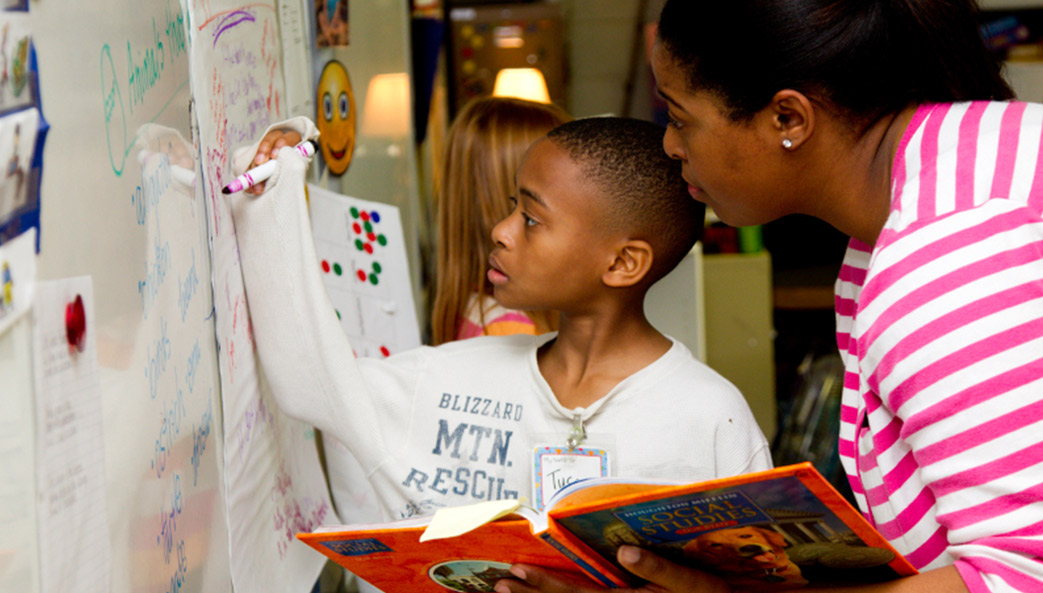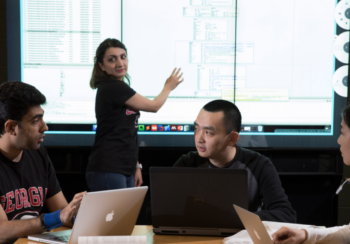For this science experiment, the group of senior 4-H’ers would need to go outside.
Getting ready to present at her 4-H program, Kalani Washington and her classmates were practicing a chemical reaction that involved dropping Mentos mints into a bottle of Diet Coke. Things were about to get messy.
The Oconee County High School sophomore can tell you all about the chemical process that creates the geyser of cola foam. (Hint: It has to do with the mints releasing the carbon dioxide that gives soda its signature fizz.)
It’s messy and visually stimulating STEM (science, technology, engineering and mathematics) experiments like this that can catch and hold a child’s attention, and it’s the kind of project the University of Georgia’s Emilie Smith encourages after-school educational programs to adopt. These simple but captivating experiences can spell the difference between an engaged and scientifically curious citizen and one without such a happy ending.
On the hot summer day of the Mentos experiment, Smith and Kasey Bozeman, 4-H science director, were visiting the Oconee County 4-H, directed by UGA alumnae Kelle Ashley, Oconee County 4-H agent, and Allison Barnes, Oconee County 4-H program assistant. Smith is piloting a program to help the people who run after-school programs become more comfortable integrating STEM projects into their curriculum.
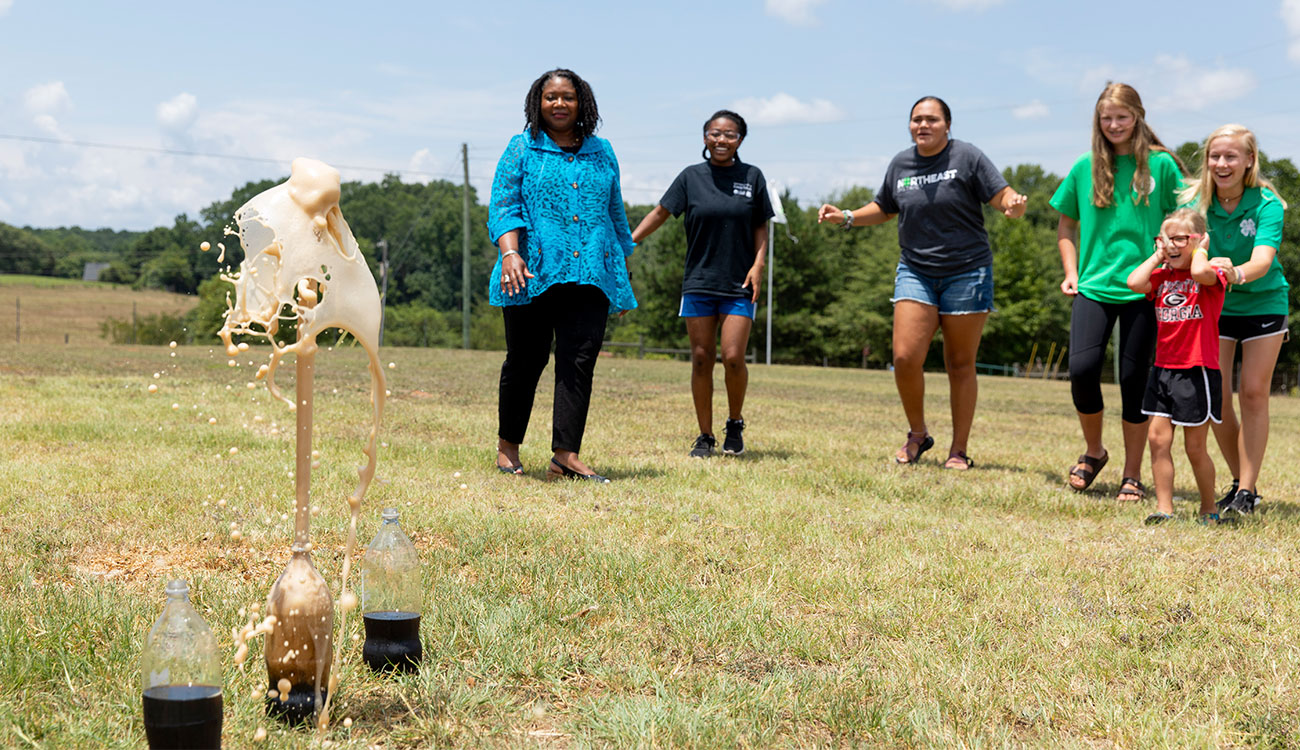
Smith, a professor of human development and family science, has spent her career working on local and national projects designed to promote positive parenting and youth development. Ultimately, she wants to reduce youth substance abuse and problem behavior. Because 70% of juvenile delinquency occurs after the final bell rings, Smith focuses on after-school activities to help young people connect and engage in positive ways.
After all, adolescent criminal activity isn’t just problematic; it’s expensive. According to a 2018 Justice Policy Institute report, it can cost upward of $300,000 to incarcerate a teen for a year.
“I would rather spend that on college tuition, the training of counselors, nurses, electricians or plumbers,” says Smith. “I would rather invest in helping young people pursue more fulfilling pathways.”
After-school programs offer a means of keeping kids out of trouble while also helping them learn to give back to their communities. Smith’s research found that the most successful after-school programs—the ones that had the right balance of structure and child engagement in activities—had adult leaders who involved the children in defining the rules of the program. That way, children in the group held each other accountable for their behavior and learned to regulate their own emotions and behaviors without relying exclusively on adults to resolve conflicts. They also feel like they have a say in how their environments are regulated, giving them a sense of autonomy that further connects them to their group.
Making science fun
Professor Emilie Smith helps 4-H’ers conduct an experiment using the chemical reaction between baking soda and vinegar to inflate a balloon and one that develops secret messages by using lemon juice to write notes and heating the paper to cause a reaction that makes the previously invisible markings visible.
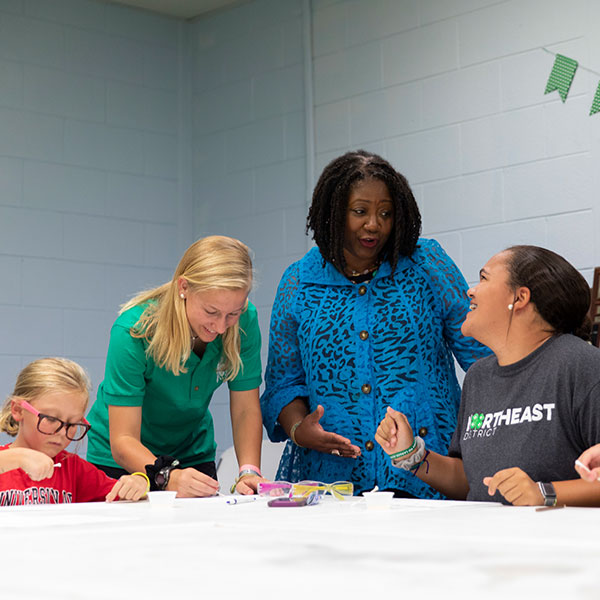
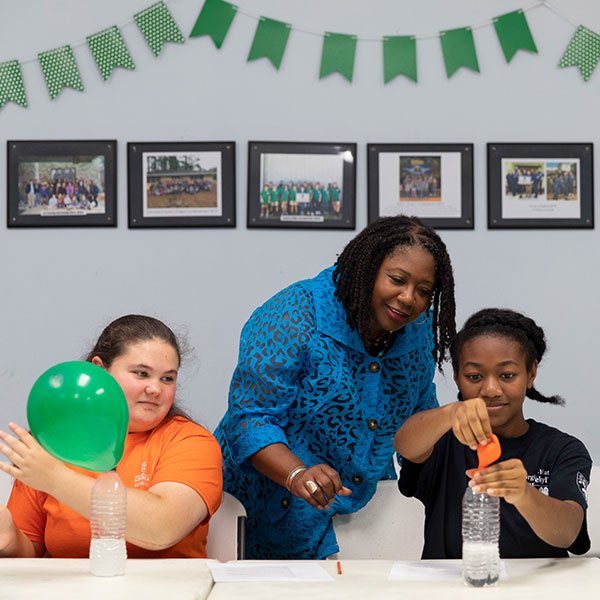
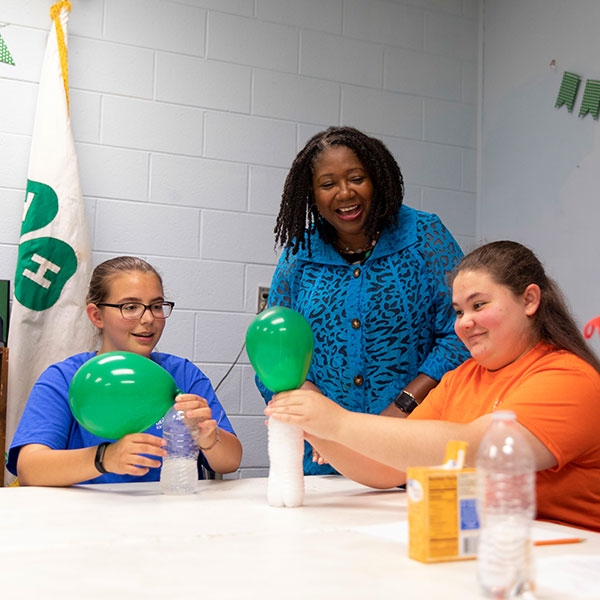
For the adults, who range from college students to retired teachers running groups like the Boys and Girls Club, learning how to facilitate this kind of development takes guidance. Children do best with a mix of structure and support, but it can sometimes be difficult to strike that delicate balance. So, using online training videos, text messaging and phone calls, “coaches” provide feedback to the group leaders and teach them how to mediate interactions rather than just control them.
Now, Smith is studying how those after-school programs can not only keep kids out of trouble but also encourage them in the STEM subjects that may have seemed daunting before and help students give back to their communities.
“Kids learn best in environments where they can experiment, lead activities, make mistakes and figure out what the right answer is,” Smith says.
Those opportunities are myriad in 4-H. The Diet Coke experiment, which Smith said reminded her of the Magic School Bus where the motto is “Let’s Get Messy,” is just one example of how a simple but visually exciting—not to mention incredibly sticky—project can pique a child’s interest in the sciences and keep them engaged in their community of learning.
“We are teaching the next generation of innovators in these programs,” says Smith. “I want to help them become citizens of our communities who can use knowledge in a number of areas to innovate, give and contribute, confidently and competently.”
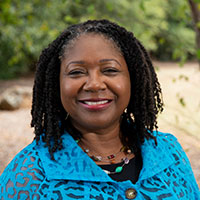
About the Researcher
Emilie Smith
Professor
Human Development and Family Science
College of Family and Consumer Sciences



